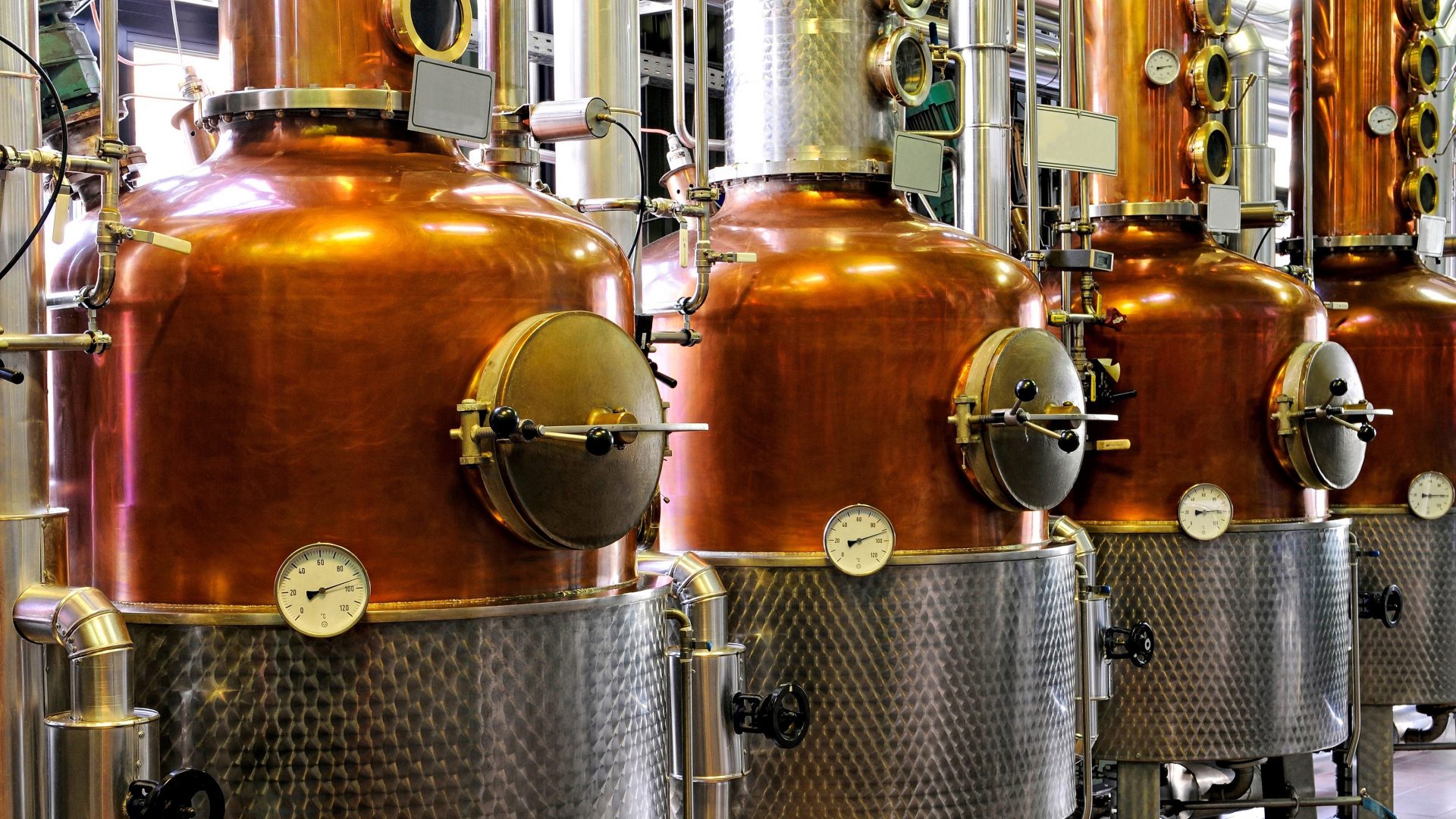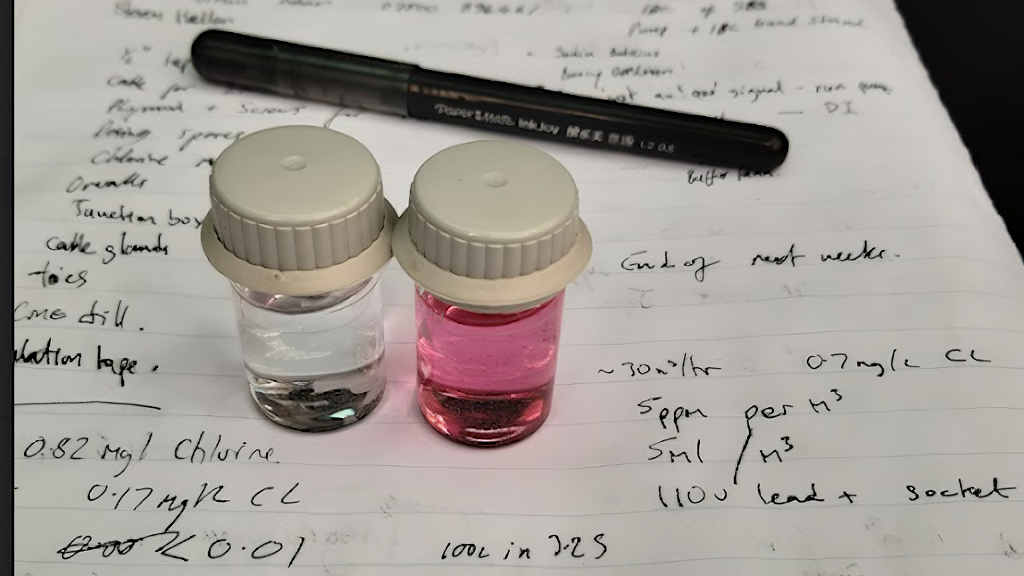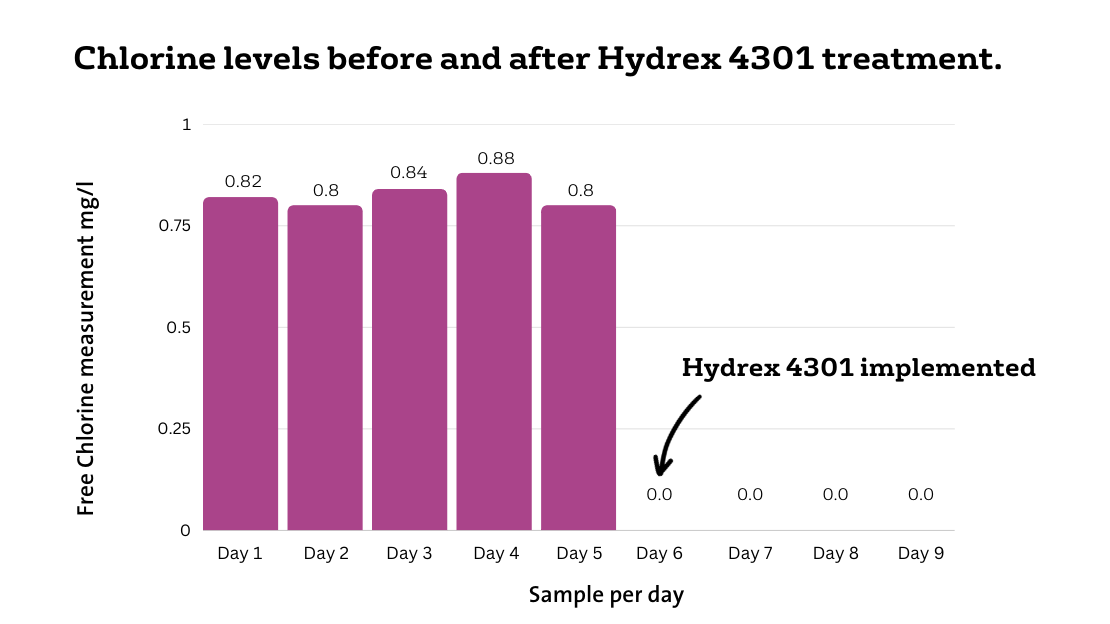Veolia Water Technologies UK (VWT UK) recently supplied a water treatment solution to optimise the operational processes at a large-scale gin distillery.
By adding its Hydrex™ 4301 water treatment chemical via a single dosing pump, VWT UK successfully removed excessive levels of residual free chlorine from the feedwater to improve the efficiency of the water conditioning units and prevent damage to the water softeners.
One of the oldest distilleries in the world, producing a significant percentage of the UK’s gin, the company uses a set of water conditioning units to process approximately 30m3/hr of raw water.
However, since moving location, the distillery suffered from an uncontrolled deterioration of the ion exchange resin beds inside these units. While this issue did not affect product quality from the site, it resulted in increased CAPEX to maintain the required levels of gin production. This was due to excessive levels of residual free chlorine, approximately 0.89 mg/l, in the facility’s feedwater.
Therefore, the distillery decided to work with a water treatment specialist that could help to reduce the presence of residual free chlorine in the feedwater to approximately 0.2 mg/l, a level that would not damage the distillery’s water softeners. It was also crucial that the solution was installed efficiently to resolve the issues as quickly as possible.
Following a competitive bid, the company selected water treatment specialist VWT UK. VWT UK had previously carried out periodic servicing of the distillery’s water softeners and reverse osmosis (RO) systems, so the two companies had a good rapport.
To effectively treat the residual free chlorine for removal from the facility’s feedwater, VWT UK supplied its Hydrex™ 4301 – a water treatment chemical that is specifically formulated for RO systems with polyamide membranes that can be affected by chlorine.
As it was vital that the issue could be resolved with minimal operator input, VWT UK installed a single dosing pump with flexible dosing pipework and an intermediate bulk container (IBC) bundstand. The dosing pump was then connected via a 110v lead and socket to transmit a signal to stop and start dosing depending upon whether the water feed pump was active. This ensured that the Hydrex™ 4301 chemical was only dosed when required.
Thanks to the water treatment solution, the distillery has now been able to reduce the level of residual free chlorine in its feedwater to <0.2 mg/l and prolong the life of the components in the water softeners. This eliminated the need to bring in demineralised water with the use of road tankers, a process that had been required when the resin beds had failed previously.
The company has also been able to accurately baseline its facility output and plan its day-to-day operations more effectively, resulting in reduced unplanned spend and CAPEX while maintaining the same levels of gin production.
“I was delighted to provide a simple and effective solution to one of my local businesses. The dosing system is still going strong after being in operation for over 12 months. The site is very happy with the extremely low usage of Hydrex™ 4301, which is even lower than originally estimated,” commented Brian Jones, Business Development Manager (North and West) at Veolia Water Technologies UK.
For more information on Veolia Water Technologies UK and its range of solutions, including its range of Hydrex™ water treatment chemicals, visit: www.veoliawatertechnologies.co.uk.





